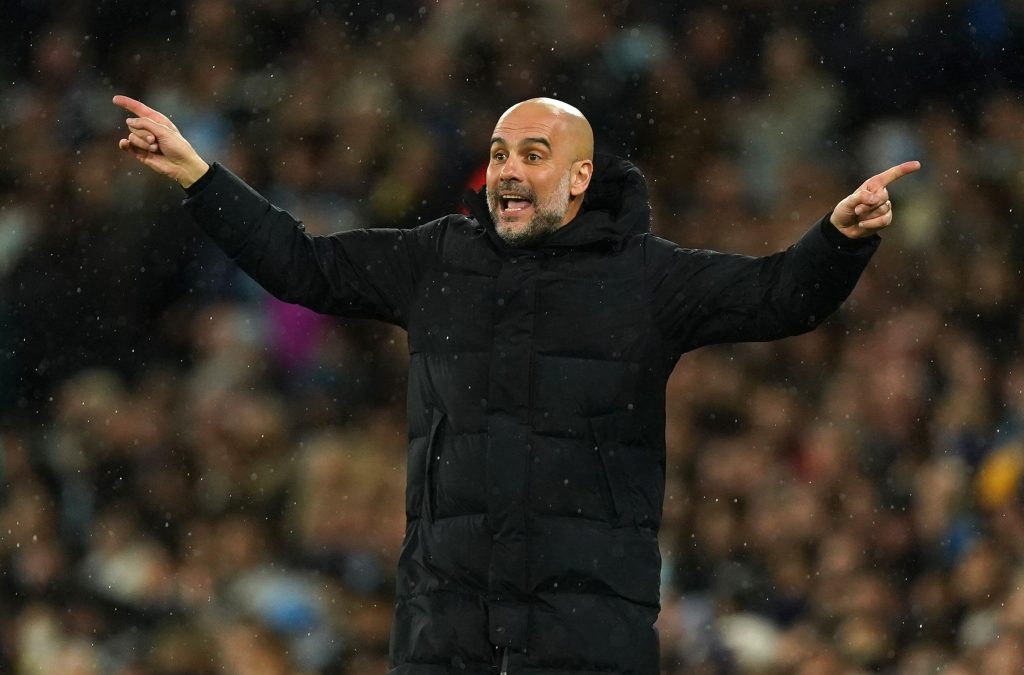
Perhaps it is a tired cliché, but they say great art is never truly appreciated until it is gone. In the case of Pep Guardiola’s coaching style, it is hard to see it ever receiving universal acclaim, particularly from a UK audience. Football is about opinions and opinions are about taste, but despite dominating for the most part since he arrived in the Premier League with Manchester City in 2016, there is a sense he has never been fully accepted.
There is a smug sense of ownership and entitlement which radiates from sections of the media and fandom over here. Football is our national game, invented, perfected and only shared with the rest of the world. That is the inward-looking, self-serving viewpoint, anyway. Guardiola, since winning the treble with Barcelona with a distinct style of play in his very first senior coaching season, 2008/09, has long been an idealist with very different beliefs to those often found in the average pundit or fan in England. Winning for him comes later, it is a byproduct of doing things correctly; passing the ball with purpose and intensity, defending from the front with high pressing and overpowering an opponent. That directly flies in the face of the idea that victory should come at almost any cost stylistically.
In a country where Sam Allardyce and Tony Pulis have been lauded as great levellers in the Premier League, there has been a constant rhetoric that Guardiola’s philosophy is impressive but boring. Basic footballing principles have been perfected by his teams, from Barcelona, through Bayern Munich and in the last six years at Manchester City; he has brought domestic success in all but three seasons during his career, and that has been dismissed as repetitive. On the other end of the sword, there is constant criticism of his lack of Champions League titles. For him to be expected to win the hardest trophy in football repeatedly shows that even his critics hold him to the highest possible standard.
Fundamentally, there is a distrust of Guardiola because he has deconstructed what many people believe should be the core principles of football. In his teams, where creating, attacking and suffocating teams is the best form of defence, those at the back and their roles are defined by much more. His goalkeepers pass the ball out from the back, centre backs push high and begin attacks and fullbacks move into the centre of midfield to create overloads, allowing the wingers to stay wide and stretch the opposition. It is high risk, high reward, which again pushes against the cautious approach regularly seen in England. For all the talk that the Premier League is intense and ferocious, there is an innate belief that most teams should play within their means.
Indirectly, Guardiola’s methods have been mocked. So many times has possession ‘in the wrong areas’ been spoken about in a derogatory context; often it has been said that ‘goalkeepers should do what they are meant to’.
Then it is worth analysing his performances in the Champions League. Should he have done better, having last won it at Barcelona in 2011? Well, it completely depends by what metric. He certainly has the quality to have won more, with the squads to match, but you are in the realms of history if you win more than the two he has, and he finds himself level with Jose Mourinho and Sir Alex Ferguson.
Guardiola himself has become irked with the line of questioning since he arrived at City, none more so than last week ahead of the first leg of their quarter final tie with Atletico Madrid. He was asked about overthinking big European games and gave a rather ironic response. In one way, it is a prime example of the debate his critics have; his brilliant tactical mind is the reason he is so obsessive over tactical approaches and for his success.
But there are clear examples where uncharacteristic decisions, completely out of the blue, have proven costly. At Bayern, he reverted to the ways of the team that won the treble before he arrived at the behest of his players and Real Madrid beat them. In the last two seasons at City, a formation change against Lyon and the lack of a holding midfielder in the final against Chelsea were the difference. In his final season at Barcelona, his stubborn refusal to change meant that the Blues were able to scrape through in the semi finals, and it has been as if that night made him think every time. How true that is, only he knows.
But there is nuance and evidence against almost every criticism. Guardiola has changed and moulded football for the better; it is no coincidence that every country he has coached in has reached or won a major tournament final either during or after his spell in their league. It is arguable that nobody has done what he has in terms of innovation, and it is high time English football accepted that.
The post High time English football gave Pep more praise appeared first on Colossus Blog.
- "
- 2016
- About
- alex
- All
- Allowing
- approach
- approaches
- Art
- audience
- average
- barcelona
- before
- BEST
- Career
- case
- change
- City
- country
- create
- Creating
- debate
- defence
- despite
- different
- During
- England
- English
- European
- Face
- finds
- First
- Football
- form
- game
- Games
- great
- having
- here
- High
- history
- hold
- How
- HTTPS
- idea
- Innovation
- IT
- League
- Level
- Line
- Long
- major
- manchester
- Match
- Media
- more
- move
- Munich
- National
- Opinions
- opposition
- Other
- overthinking
- Ownership
- People
- philosophy
- play
- players
- possession
- possible
- Premier League
- purpose
- quality
- response
- REST
- Risk
- Said
- Semi
- sense
- shared
- SIX
- So
- stay
- style
- success
- tactical
- Team
- The
- the world
- Through
- TIE
- time
- tournament
- Uk
- Universal
- week
- What
- win
- winning
- within
- world
- worth
- years











